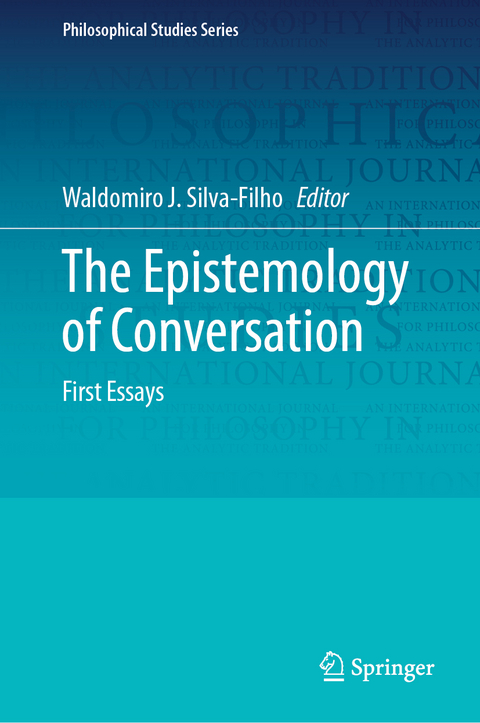
The Epistemology of Conversation
Springer International Publishing (Verlag)
978-3-031-74068-8 (ISBN)
This edited volume presents an innovative perspective on conversation and is the first book to deal with the epistemic aspects of conversation or dialogue. "Conversation" has been a recurring subject in various fields of philosophy, such as moral philosophy, pragmatics, and the philosophy of language. This text assumes conversation as a joint agency and explores when participants assume common purposes, commit to contributing relevant statements, and face the challenges of confronting interlocutors. It investigates whether the norm of conversation can be reduced to the interaction between speaker and audience, where the speaker must speak the truth and the audience must understand this intention. This volume explores the epistemology of testimony and addresses the motivations for starting a conversation, which can include legitimate disagreements, as well as curiosities about the interlocutor's beliefs and shared doubts. This text contributes to understanding epistemic dynamics in contemporary liberal democracies, such as polarization, disintegration of epistemic communities, silencing, and epistemic injustices. It appeals to students and researchers.
Waldomiro J. Silva-Filho is Full Professor of Philosophy at the Federal University of Bahia and a Research Fellow at Brazil's National Research Council. He was visiting professor at the Universität zu Köln (2017 and 2019, Germany), MIT (USA, 2015-2016), and Harvard University (USA, 2009-2010). He has published and organized, among others, the following books: Looking for Reasons (2022), Why Philosophy Matters to Democracy (2019), Thinking about Onself (2019). He was President of the Brazilian Society for Analytical Philosophy (2016-2018).
01 Introduction. Conversation: Epistemological investigations.- 02 Conversation and joint agency: Why addressees are epistemically special.- 03 On the contours of a conversation.- 04 Virtuous arguing.- 05 Wit, pomposity, curiosity, and justice: some virtues and vices of conversationalists.- 06 Conversation and joint commitment.- 07 Group belief and the role of conversation.- 08 Knowledge norms and conversational.- 09 Norms of Inquiring Conversations.- 10 Deception detection research: Some lessons for the epistemology of testimony.- 11 Twisted ways to speak our minds, or ways to speak our twisted minds?.- 12 Aesthetic disagreement, aesthetic testimony, and defeat.- 13 Critical social epistemology and the liberating power of dialogue.
| Erscheinungsdatum | 09.11.2024 |
|---|---|
| Reihe/Serie | Philosophical Studies Series |
| Zusatzinfo | XI, 272 p. |
| Verlagsort | Cham |
| Sprache | englisch |
| Maße | 155 x 235 mm |
| Themenwelt | Geisteswissenschaften ► Philosophie ► Allgemeines / Lexika |
| Geisteswissenschaften ► Philosophie ► Erkenntnistheorie / Wissenschaftstheorie | |
| Geisteswissenschaften ► Philosophie ► Sprachphilosophie | |
| Schlagworte | assertion and philosophy • cognitive science and philosophy • Conversation and assertion • Conversation and Responsibility • cooperation and philosophy • epistemic agency • Epistemic cooperation and testimony • Epistemic disagreement • Epistemic vices • Epistemic Virtues • epistemology and analytic philosophy • Epistemology of testimony • Ernest Sosa • group disagreement • Knowledge norms • philosophy of language and analytic philosophy • political philosophy and epistemology • Speech Acts • Waldomiro Silva-Filho |
| ISBN-10 | 3-031-74068-8 / 3031740688 |
| ISBN-13 | 978-3-031-74068-8 / 9783031740688 |
| Zustand | Neuware |
| Informationen gemäß Produktsicherheitsverordnung (GPSR) | |
| Haben Sie eine Frage zum Produkt? |
aus dem Bereich


